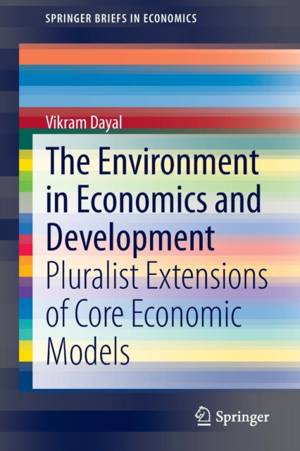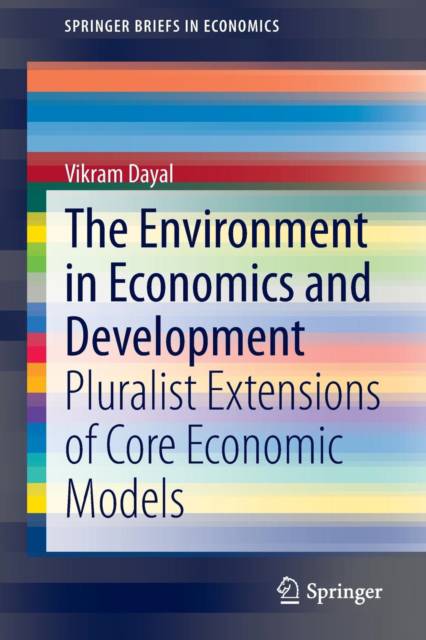
Bedankt voor het vertrouwen het afgelopen jaar! Om jou te bedanken bieden we GRATIS verzending (in België) aan op alles gedurende de hele maand januari.
- Afhalen na 1 uur in een winkel met voorraad
- In januari gratis thuislevering in België
- Ruim aanbod met 7 miljoen producten
Bedankt voor het vertrouwen het afgelopen jaar! Om jou te bedanken bieden we GRATIS verzending (in België) aan op alles gedurende de hele maand januari.
- Afhalen na 1 uur in een winkel met voorraad
- In januari gratis thuislevering in België
- Ruim aanbod met 7 miljoen producten
Zoeken
The Environment in Economics and Development
Pluralist Extensions of Core Economic Models
Vikram Dayal
€ 69,95
+ 139 punten
Omschrijving
This brief views the environment through diverse lenses - those of standard economics, institutional economics, political science, environmental science and ecology. Chapter 2 discusses diverse theoretical and statistical models - constrained optimization models, game theory, differential equations, and statistical models for causal inference - in a simple manner. Developing countries have certain distinct environmental problems - traditional pollution and traditional dependence on the commons. While chapters 3 and 4 discuss these specific problems, statistical graphs of the World Development Indicators explore the macro-context of developing countries in chapter 1. Chapter 5 examines ecological systems, which are nonlinear and unpredictable, and subject to sudden regime shifts. Chapter 6 deals with the global challenges of climate change and biological invasions. The last chapter discusses sustainable development and institutions. The brief explains these topics simply; mathematics is largely confined to an appendix. The broad treatment and simple exposition will appeal to students new to the field of economics. The extension of core economic models in diverse directions will also be of interest to economists looking for a different treatment of the subject.
Specificaties
Betrokkenen
- Auteur(s):
- Uitgeverij:
Inhoud
- Aantal bladzijden:
- 84
- Taal:
- Engels
- Reeks:
Eigenschappen
- Productcode (EAN):
- 9788132216704
- Verschijningsdatum:
- 4/12/2013
- Uitvoering:
- Paperback
- Formaat:
- Trade paperback (VS)
- Afmetingen:
- 156 mm x 234 mm
- Gewicht:
- 149 g

Alleen bij Standaard Boekhandel
+ 139 punten op je klantenkaart van Standaard Boekhandel
Beoordelingen
We publiceren alleen reviews die voldoen aan de voorwaarden voor reviews. Bekijk onze voorwaarden voor reviews.









